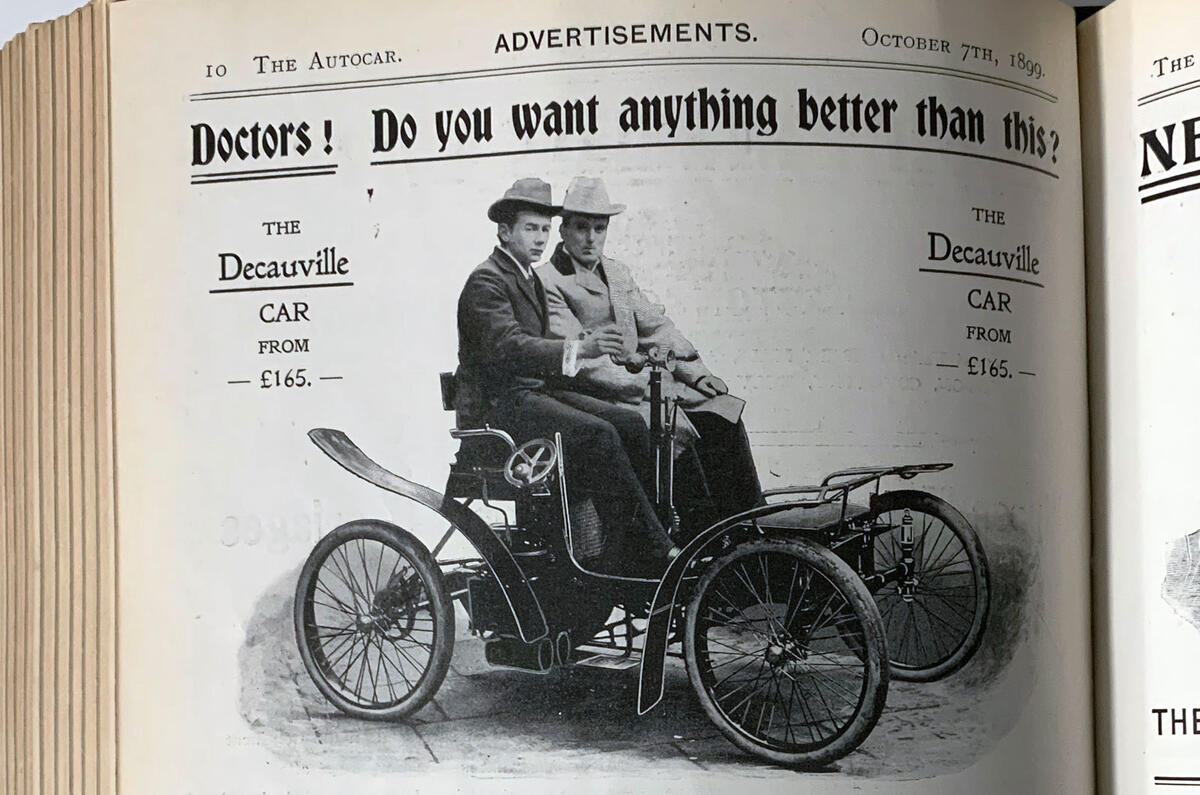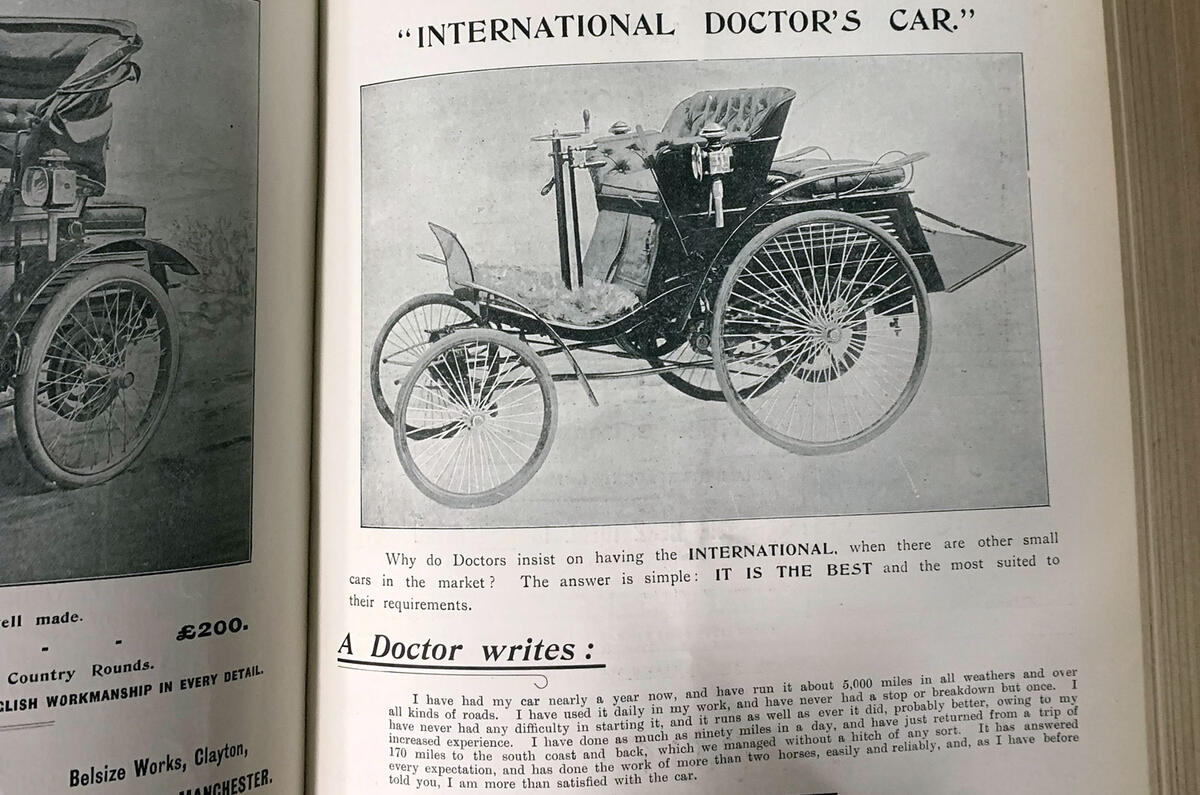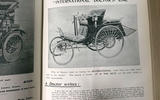As cars emerged in the 1890s, among the keenest adopters – aside from the rich and the landed – were doctors.
Before the advent of the NHS, it was common that you would call your doctor and they would come to visit you at home, by means of horse and cart.
This method of transport felt completely natural, of course, having an unbroken chain of use back to anicent times. As such, many were tentative, if not outright dismissive, when a patently superior but unfamiliar and perhaps even frightening alternative emerged.
In fact, so obvious was the appropriateness of the car for men of medicine that many manufacturers produced bespoke doctor's cars. Two that frequently advertised these in Autocar at the turn of the century were Decauville and the International Motor Company.
International was a London-based seller of various French and British models, and its 'doctor's car' – of untold origin but, the advert said, "the best and the most suited to their [doctors'] requirements".
One doctor wrote of this car: "I have run it about 5000 miles in all weathers and over all kinds of roads. I have used it daily in my work and have never had a stop or breakdown but once. I have done as much as ninety miles in a day and have just returned from a trip of 170 miles to the south coast and back, which we managed without a hitch of any sort.
"It has answered every expectation and has done the work of more than two horses, easily and reliably, and I am more than satisfied with the car."
As for the Decauville, one Dr Ivor Davies said: "I have no hesitation in recommending the car (three speeds) to any gentleman. I think it especially useful to medical men who have many daily visits to pay, as the motor can be stopped quickly and entirely, and restarted with such ease. I find my motor has easily done the work of a brougham and two or three horses. I find in my practice that the car is economical, speedy and as ready to hand as a bicycle."
Debate over the merits of a car went back and forth in the readers' pages, with a good example in favour coming from a Dr C Harris Langford MB of Crouch End, London, and published on 7 October 1899:
"It is idle to pretend that everything is perfectly straightforward when one starts moting (to use a word which bids fair to become general) [Not sure about that, doc]. There is much to learn both in the construction of the machine and its use; but when understood we have a vehicle which is under perfect control, will travel any rate we wish to go, easily stopped, and easily started.
"But the learning is not so very difficult at all. Certainly I found the earlier rides cause a rather severe mental strain, but I doubt whether this would have been less if I had been driving a horse.
"As a first step I consider it essential to thoroughly understand the machine. If this is done it is possible to find out the cause if anything goes wrong, and put it right at once. Things will go wrong at first, as with all new undertakings, but most of the troubles are slight if put right at once. I will not say that my car has never gone wrong, but it has always been conquered in the end, and on every occasion I have ridden it home victoriously, and never had to push it.








Join the debate
Add your comment
Only 100% spam so far.
Only 100% spam so far. Surely the spammers can do better than that?